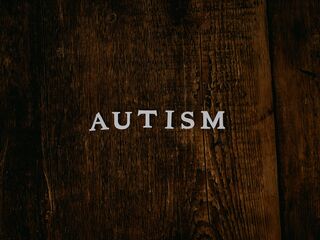Asperger's Syndrome
A Concern About "Asperger's" Terminology
A primer on the controversies surrounding the now-defunct disorder label.
Posted June 28, 2021 Reviewed by Kaja Perina
In a taping of Saturday Night Live from early May of this year, Telsa CEO and Grimes’ paramour Elon Musk came out as having Asperger’s syndrome. During his opening monologue, Musk joked that he was the first-ever SNL host to have the disorder — or at least the first to admit to having it openly.
There’s a couple of issues with that remark. The first is that SNL very much had an openly autistic host in the past, former cast member Dan Aykroyd. For years, Aykroyd has been vocal about being autistic and has discussed how his own autistic special interest in the paranormal informed the writing of the 1984 film Ghostbusters. SNL has also been hosted by comedian and former ensemble member Chris Rock, who came out last year as having Nonverbal Learning Disorder, which is on the autism spectrum. Frequent SNL musical guest David Byrne is openly autistic too. So Musk is far from the first out, proud autistic to grace the Rockefeller Plaza stage.
But the real issue with Musk’s remark, as many autism self-advocates have been quick to point out on Twitter, is not his self-aggrandizement. It’s his use of the term Asperger’s, which is generally considered by most prominent voices in the community to be outdated and unhelpful at best, downright dangerous at worst.
The American Psychological Association removed Asperger’s syndrome from the Diagnostic and Statistical Manual of Mental Disorders (the DSM) back in 2013, at which point it was folded into a larger category, autism Spectrum Disorder. Asperger’s syndrome is also slated to be removed from the ICD-11 (the international analogue to DSM in the U.S.) in 2022, where it will also be combined with a broader autism Spectrum Disorder label. The autistic self-advocacy community celebrated this news in both cases.
Prior to its removal from the DSM, Asperger’s syndrome was a label typically assigned to autistic people viewed as “higher functioning,” often men with high intelligence who behaved awkwardly and were resistant to change. Conversely, an autism diagnosis was traditionally put on young children, again usually boys, who were more visibly disabled, disruptive, or in need of support. Therein lies the problem: autism is not so easily divided into two categories, with one class of us being capable, productive, and socially respectable on the one hand, and nonspeaking, "low intelligence," "low functioning individuals" on the other.
So-called "aspies" had long been assumed to have an easier time in life than their more visibly autistic peers. In actuality, much of their suffering was simply shunted off into the private realm, experienced alone at the end of a long day spent masking as someone more neurotypical. On the flip side, many people labeled as autistic routinely had their competence underestimated and their humanity erased, particularly if they couldn’t speak or needed caregiving support.
The disorder is named after Hans Asperger, an Austrian pediatrician who directed the special education division of a Vienna hospital in the early 20th century, and then later colluded with the Nazi regime to help them “study” disabled children. In 1944, Asperger published a detailed profile of a specific subclass of his disabled patients, a highly intelligent, well-spoken, socially awkward group of kids he deemed “little professors.” This writing later informed the diagnostic criteria for the Asperger’s syndrome.
For many years, historians and psychologists believed Asperger was a well-intentioned but canny pediatrician, who cooperated with the fascist regime in order to spare the lives of his autistic patients. In his landmark 2015 book Neurotribes, author Steven Silberman describes Asperger as having a strong attachment to his nerdy “little professor” patients, who reminded him of himself. However, in 2017 newly unearthed documents revealed that Asperger took a far more active role in Nazi eugenicist programs than had been previously known. It turned out that Asperger actually studied a wide variety of disabled patients, many of them autistic kids who weren’t as verbally and intellectually impressive as his Aspie "professors." In several cases, Asperger referred these more visibly disabled kids out to the Am Spiegelgrund Clinic, a Viennese extermination center.
This revelation really cuts to the heart of how an ableist society distinguishes between the disabled people it considers worthy of life, and those it gladly resigns to institutionalization, forced sterilization, and even death. So-called Aspie children were accepted only insofar as their disabilities made them productive contributors to the Nazi regime; their worthiness was built upon the contrast Asperger drew between them and the less productive, high-support-needing autistics he sent to die. It is this history that Elon Musk evokes when he self-identifies as a person with Asperger's -- one of the "worthy" disabled people who would have been spared -- instead of standing in solidarity with all of us.
The desire to distance oneself from the “wrong” kind of disabled people is counter to the goal of autistic liberation and disability justice. It’s a bid for neurotypical approval that reinforces the same values that left us oppressed and excluded in the first place. Either all autistics are worthy of life, no matter how awkward, “scary,” unproductive, or cringey we are, or none of us are.

Ultimately though, liberation for disabled people isn’t about scrubbing ourselves free of problematic language, so much as fighting the frameworks that judge a person’s humanity by their ability to comply with social rules and be productive. It takes a long time for one's identity to shift, and I can't fault people who had the Asperger's label foisted on them for having the desire to reclaim it.
When I recommend people read Anand Prahlad’s The Secret Life of a Black Aspie, I don’t hedge about him using the “wrong” language. I know for a fact that his work serves to uplift all autistic people, particularly Black genderqueer ones who grew up in poverty, like himself. He rejects respectability politics outright. Elon Musk gleefully feeds into it. There are political differences that go much deeper than language.
When the high-status Elon Musks of the world bask in an Asperger’s identity, it’s the belief in their own superiority and their desire for neurotypical approval that is the core issue. And fixing that problem must go a lot further than just changing our language.




